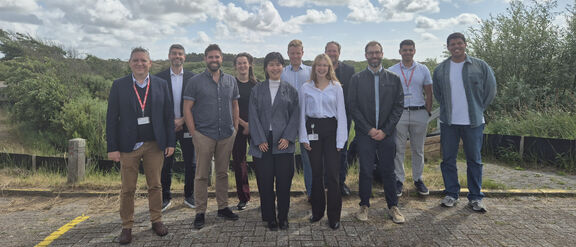Along with John Cockerill Hydrogen and Jolt, Rely is participating in a new Shared Research Programme led by the Dutch research institute TNO aiming at boosting the development of Anion Exchange Membrane electrolysers. This three-year program started this summer. Rely will contribute to it with its expertise in large-scale industrial installations in terms of safety, energy management, industrialization and maintainability.
Jean Jouet, Chief Technology Officer of Rely: “As industrial players, we are proud to be able to participate in such a pioneering research project, demonstrating our commitment to limitless innovation and our willingness to explore every pathway towards industrial decarbonization. Exploring all technology avenues allows us to enhance the performance of green hydrogen production.”
The other industrial partners are currently the Spanish company Jolt, a spin-off from the ICIQ research institute in Barcelona renowned for its catalysis research and specializing in the production of activated electrodes (catalyst coated metallic substrates) for traditional alkaline electrolysis and novel AEM electrolysers, and John Cockerill Hydrogen, one of the industry leaders of Pressurized Alkaline Electrolysers.
A cost-efficient, PGM-free technology
AEM electrolysers offer potential for greater geopolitical independence and reduced hydrogen production cost, as they have the inherent advantage of avoiding critical raw materials. They produce hydrogen using a semipermeable membrane that conducts hydroxide ions (OH−), while separating the hydrogen and oxygen products and providing electrical insulation between the electrodes. Their design resembles that of proton-exchange membrane (PEM) which, as the name indicates, conducts protons. While the latter feature an acidic operating environment, AEM electrolysis is alkaline in nature. This has the inherent advantage that it does not rely on high-cost noble Platinum Group Metals (such as platinum and iridium). Instead, it can utilise transition metal catalysts that are more abundantly available and less costly, such as nickel and iron.
While traditional alkaline water electrolysis is a mature technology since more than a century, and PEM electrolysis has been commercialized over the last decade, AEM electrolysis is still in the early stage of research and development.
This Shared Research Program is precisely aiming at exploring how technological innovations can enhance the performance, the durability, and ultimately the cost of future AEM electrolyser systems. Partners will cooperate in a precompetitive, open innovation approach to perform more focused R&D and derisk technology development. Participation in this research program is still open to other players across the value chain.
Picture Caption: Participants in the kick-off meeting in Summer 2025. From left to right: Thibault De Sorbier (Rely), Mert Colakoglu (TNO), Jordi Creus Casanovas (Jolt), Tara van Abkoude (TNO), Jeannet Liang (TNO), Marco Wonink (TNO), Ellis Donker (TNO), Arend de Groot (TNO), Alberto Bucci (Jolt), Amin Farkhondehfal (John Cockerill Hydrogen), Luis Enrique Botello (Jolt).
